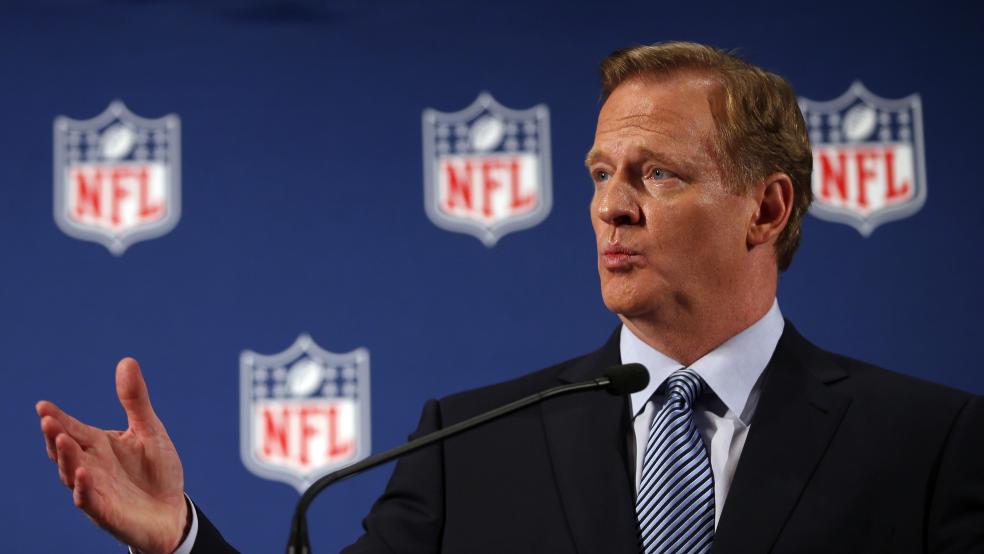Underneath all the scandals that swirled around the NFL last season, from the Ray Rice domestic abuse embarrassment to the New England Patriots’ Deflategate, was the fact — equally scandalous to some — that while each of the 32 teams is required to pay taxes on its income, the league’s central office is a tax-exempt not-for-profit organization.
With every public relations black eye, the NFL’s tax-exempt status drew increasing scrutiny, including from Congress, where Rep. Jason Chaffetz (R-UT) was reviewing the league’s tax exemption with an eye toward eliminating it--an effort previously pushed by former Sen. Tom Coburn (R-OK). It didn’t help that the man steering the not-for-profit league through these recent crises, Commissioner Roger Goodell, is reportedly being paid about $300 million over seven years.
Now, the league is voluntarily moving to change its status before it gets changed by lawmakers. In letters to team owners and members of Congress, Goodell said the league had “decided to eliminate this distraction” and will file its returns for 2015 and beyond as a taxable entity.
Related: Forget Deflategate — Here’s the Real NFL Scandal
“The fact is that the business of the NFL has never been tax exempt. Every dollar of income generated through television rights fees, licensing agreements, sponsorships, ticket sales and other means is earned by the 32 clubs and is taxable there,” Goodell wrote. “This will remain the case even when the league office and Management Council file returns as taxable entities, and the change in filing status will make no material difference to our business.”
The financial impact really will be small. The NFL itself had about $327 million in revenue as of its fiscal year ended March 31, 2013, and by some estimates its tax bill would be about $10 million — certainly not a sizable “material difference” for a league that, through its teams, generates roughly $10 billion a year in revenue.
The public relations impact will certainly be more significant. The change should ease at least some of the pressure on the league and its commissioner — perhaps in more ways than one. Yes, the NFL avoids getting hammered further for its tax-exempt status. Chaffetz and Democratic Rep. Elijah Cummings (MD), the ranking member of the House Oversight and Government Reform Committee, issued a statement saying they were “extremely pleased” by the NFL’s decision. “We thank the NFL for their leadership and look forward to rightfully returning millions of dollars to the federal treasury as a result,” their statement said. That sure is better for the league than having executives chastised publicly at congressional hearings.
But the NFL’s move also means that it will no longer be required to disclose Goodell’s salary — more than $44 million in 2012 — or that of other top earners, as well as certain additional financial information, as Bloomberg notes. Goodell and the league could still choose to release those details, of course, but if they don’t, then critics will have one fewer round of ammo to use the next time an NFL scandal erupts.
Top Reads from The Fiscal Times:
- 11 Insanely Overpaid Public Employees
- America’s Highest Paid CEO: It’s Not Who You Think
- The Liberal Solution to America’s Big Spending Problem





